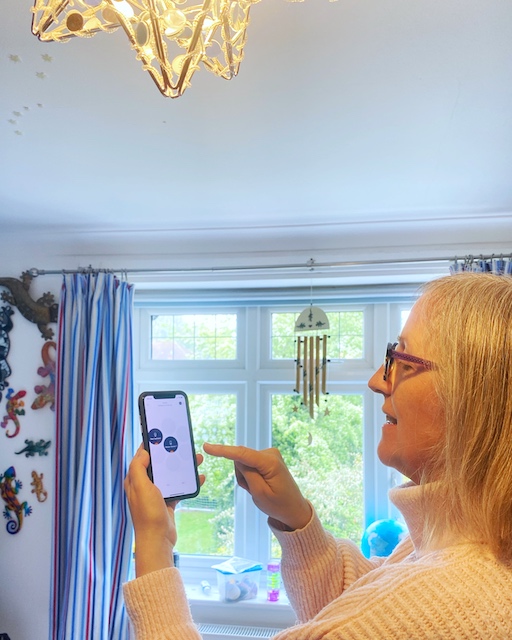
Have you ever considered using smart home devices to reduce your energy output? Every year our gas and electricity bills go up, however much I nag about lights left on, and doors open to a freezing cold garden. I worry about the impact not only on our finances, but also on whether I’m personally doing enough to protect our planet.
[box type=”shadow”] Advertorial content: this post contains links to Hive, who have paid me for my time in creating this post. All images and opinion is my own. [/box]
I’ve been intrigued by the idea of eco-friendly smart home devices for a long time, but I’d always assumed they’d be a faff to install in our creaky old home. But I’m always keen to look at ways of reducing our impact on the environment, and if I’m honest I quite like the idea of being able to have the heating off all day but still switch it on before I get home so it’s cosy.
So when Hive got in touch to ask if we’d like to try a starter-pack I decided to take the plunge and see if it was as complicated as I imagined. And it wasn’t! The starter pack comes with a home hub, two smart light bulbs, a smart plug adaptor and a motion sensor. I’d expected to have to upgrade my electrical wiring, but installation couldn’t have been more simple. We just plugged everything in, connected the devices to the hub, installed the app on my phone, and we were all set.
The benefits of a smart home system
Probably my favourite smart devices are the light bulbs. We haven’t been out of the house much recently because – pandemic! But when we have been out after dark it’s been reassuring to be able to switch on lights randomly while we’re out to make it look like we’re in. And there’s something much nicer about coming home to a well-lit house when it’s dark outside. We’ve been able to do all that from our smartphones, without leaving lights on all evening and feeling guilty about our carbon footprint.

I know I’m going to love the safety aspects of the Hive when we’re finally allowed to travel as well. I have to confess that I’ve left lights permanently on in my home before now when we’ve been on holiday, and it makes me cringe to think of all that wasted energy. Hive light bulbs are 80% more energy-efficient too, so that will reduce our output still further.
I’ve been known to leave the hot water on for 2 weeks while we’ve been away, and it always makes me feel guilty. With my smart devices I’m going to be able to switch on lights for short periods of time, and even turn the heating on briefly to stop water pipes from freezing if we’re away during a cold spell.
Things you can do with a smart home motion sensor
But possibly the most reassuring thing about having a smart home is the motion sensor. If there’s ever any unexpected movement in the house when we’re not here we’ll get an alert on our phones so we can investigate further. And for parents of small children the motion sensor can be connected to your hall lightbulb so that if little ones get up in the night the light goes on. No more “Mummy I’m scared of the dark,” and no need to leave the lights on all night.
More benefits of a smart home
Now we’ve got started I have to admit that our smart home features are becoming kind of addictive. I’m now looking at a smart thermostat (so I can turn it down automatically when people who don’t understand how a thermostat works bang it up to 30 and we all start to swelter).
Given that heating is probably our biggest household expense, and definitely our biggest environmental impact I want to add Hive Active Heating to our smart home package before next winter. It works with your existing heating system and lets you control your heating remotely, so if you are out and about, you can avoid heating up an empty home. Adding smart radiator valves will save us even more by only heating the rooms we’re actually using, rather than the whole house.

I’m also going to buy more plug adapters for endless home comforts I’d never realised I wanted before: turning on the heating and flicking the switch on the kettle with my phone when I wake up so I’ve got a warm kitchen and a cup of tea after my alarm snooze; and being able to check whether my teen has left her hair straighteners switched on after we’ve left the house – and actually turn them OFF if so!
Getting some nice music playing before I come home to set the mood would also be a game changer (kidding, but in my dating years I would have LOVED this feature!)
In the future I imagine all new homes will be built with smart systems installed – it’s probably the biggest way we can contribute on a daily basis to reducing our environmental impact. In the meantime, Hive is super easy to install and set up, and at £129 for a starter pack it’s not too expensive to get started.
Do you have a smart home system?
This post is in conjunction with Hive but all thoughts are my own.